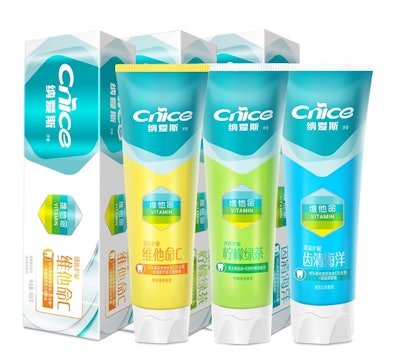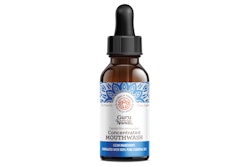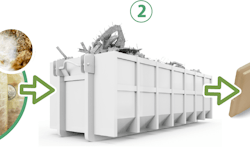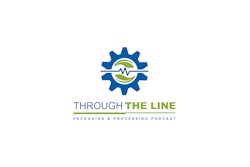For Consumer Packaged Goods companies and packaging suppliers alike, one of the Holy Grails of sustainable packaging is the quest to reengineer historically non-recyclable materials so that they can be easily recycled. Examples include multilayer flexible films, wax-coated produce shipping cases, and—a biggie for the oral hygiene industry—laminated toothpaste tubes, a particularly tough nut to crack due to the need for an aluminum layer.
Toothpaste tubes are traditionally constructed of layers of plastic, with a thin layer of aluminum sandwiched between layers to protect the product from oxygen and humidity. Because of its multilayer structure, and in particular, the aluminum layer, until recently, the tubes could not be recycled. As a result, an estimated 400 million toothpaste tubes are discarded every year in the U.S. and at least 1.5 billion globally. Using another measure to convey the scale of the problem, materials science company Dow shares that unrecyclable toothpaste tubes account for an estimated 100,000 tons of waste each year—“roughly the weight of 10 Eiffel Towers.”
Fortunately, as is the case with the other non-recyclable packaging formats mentioned above, great strides have been made recently by packaging materials suppliers to develop new tube constructions for toothpaste that are curbside-recyclable. Among those brands that have introduced recyclable tube packaging for their toothpaste products are GSK, Unilever, and Colgate-Palmolive. In late 2021, Chinese multinational NICE Group joined this illustrious list of global companies, switching its portfolio of toothpaste brands to a fully recyclable tube designed by Dow and Amcor.
Project addresses all stakeholders’ commitments
NICE is a 50-year-old company that specializes in household care, fabric care, oral hygiene, and personal care products. Its brands, which include DIAO, Supra, NICE, Jianshuangbai, Yayale, 100 Years Hair Care, and Natural Magic, are sold in more than 70 countries and regions, including the U.S., the U.K., Japan, and others. According to Lei Zhang, Chief Engineer for NICE, the company has one of the largest bases of personal care products across the globe, operating 10 production sites worldwide.
Differentiating the brand from its competitors is its company philosophy, “Enhancing Your Life,” Zhang shares. “With the ambition to be an environmentally friendly, safe, and healthy company, NICE Group uses advanced technology to design and develop green products,” he shares. “Adhering to our mission of making life better and our world cleaner, we make great efforts to advance sustainable development. We were one of the first companies to adopt the concept of environmental lifecycle management in the product design and development stage, systematically considering the impact of raw material selection, production, sales, use, recycling, and disposal on the environment. We strive to minimize the consumption of resources during the entire lifecycle of products to reduce the generation and discharge of pollutants, in order to protect our environment to the largest extent.”
Packaging is an important part of the lifecycle of a product, he emphasizes, which has prompted NICE to make a number of improvements in the sustainability of its packaging. “In recent years, NICE Group has advanced the lightweight design of packaging and has reduced the use of virgin plastics by more than 5,000 tons and the use of virgin paper by more than 3,000 tons each year,” he shares. “In addition, we have introduced more recyclable packaging.” That includes its recent introduction of a new toothpaste tube for its Cnice gum and tooth care line, its Jianshuangbai high-end line of professional whitening toothpaste, and its Yayale line, a Chinese brand of children’s oral care products.
According to Zhang, NICE was one of the first companies to propose the concept of recyclable toothpaste tubes, an idea that came to fruition by working with its long-time packaging partners Dow and Amcor. Notes Haley Lowry, Global Sustainability Director at Dow Packaging & Specialty Plastics, “NICE is committed to using more recycling-friendly packaging to promote its circular economy and was determined to step up and find a way to reduce oral care waste entering landfills. Evolving packaging used in a well-established industry such as oral hygiene is a journey that takes close collaboration and commitment in order to develop scalable solutions.
“To meet our sustainability goals and to address the ongoing increase of toothpaste tubes in landfills, we worked with Amcor, a global leader in producing responsible packaging, to develop a full plastic laminate.” Among Dow’s sustainability commitments, it has pledged to make 100% of its products sold into packaging applications reusable or recyclable by 2035.
Xin She, President of Amcor China, shares that Amcor China’s partnership with Dow and NICE dates back 20 years, with the tube-packaging project ramping up five years ago. “In 2018, Amcor signed the [Ellen MacArthur Foundation] New Plastics Economy Global Commitment, and we were the first global packaging company pledging to develop all packaging to be recyclable or reusable by 2025,” he says. “Since then, we’ve been working with Dow and NICE on this project.”
Engineering the tube is ‘complex work’
The challenges associated with the project were multifaceted. Not only did Dow and Amcor need to design a mono-material substrate that would provide the same oxygen and humidity barriers as the plastic/aluminum laminate tube, but that material also needed to be able to run on both Amcor’s converting equipment and on NICE’s existing filling equipment.
“To increase the recyclability of the toothpaste tube, we had to remove the aluminum layer from the structure, however, we also needed to ensure the high barrier performance required by the application,” explains Lowry. “Polyethylene plus ethylene vinyl alcohol coextruded film is a typical all-plastic structure that can fulfill the needs of recyclability as well as high barriers.”
Pulling from its product portfolio, Dow engineered an all-plastic structure that meets the stringent barrier requirements of toothpaste. The laminate comprises Dow’s high-barrier ELITE AT (Advanced Technology) PE resin, which is said to offer high processability as well as high shrink, ultra-high stiffness, sealability, and organoleptics. Dow’s BYNEL adhesive resin provides the coextrusion tie layer between the PE and EVOH, ensuring the integrity of the laminate to secure the barriers.
“The surface film materials offer high gloss, low haze, and minimal gel defect, ensuring an appealing aesthetic appearance,” Lowry adds. “And, an additional benefit, removing aluminum enables a transparent appearance.”
Once the resins were selected, Amcor designed and converted the tube, continuously adjusting its manufacturing and converting systems to ensure operational efficiency and safety, shares She. It also worked with NICE to perform stability, equipment, and transportation testing to guarantee consistency in quality.
“We needed to make sure the new resins could run smoothly and economically on Amcor and NICE’s equipment, which required deep expertise and experience from operation and technical teams,” says She. “Developing a recyclable toothpaste tube was complex work, a lot of factors had to be taken into consideration. The barrier property was the key point of tube laminates, so we needed to ensure excellent barrier with a low EVOH ratio. We three parties worked together closely and designed the structure and formulation with high-performance granules. We tested many times, and finally the issue was fixed.”
An industry-wide movement
The resulting package, now used for all of NICE’s toothpaste brands, provides all of the functionality of the non-recyclable plastic/aluminum tubes, plus other advantages, and has been well received by consumers. “Once on shelves, the toothpaste products with the new recyclable packaging were widely welcomed by consumers. In particular, the toothpaste products packed with a transparent plastic tube is the most popular because its packaging allows consumers to see the high-quality toothpaste and feel more relieved when purchasing and using it,” Zhang says. “At the same time, the recyclable tube is more eco-friendly than the aluminum-based tube. In the process of purchasing and using NICE toothpaste, consumers are delivering on their eco-friendly promises and contributing to greater environmental protection, giving them a sense of achievement and honor.”
With NICE’s introduction of the new tube, Zhang says the company will be able to prevent approximately 3,000 metric tons of toothpaste tubes from entering landfills each year—not an insignificant number, especially when combined with the reductions promised by other CPGs as they roll out their own recyclable tubes. Among them, GSK has pledged to make over 1 billion tubes recyclable by 2025.
Commenting on the number of oral hygiene brands and packaging suppliers introducing recyclable toothpaste tubes to the market, Dow’s Lowry says the more the merrier. “Sustainability is a mega trend driving the development of the packaging industry,” she says. “We are glad to see more and more brand owners share the same vision with Dow to close the loop and commit to develop and adopt more recyclable packaging.”
Zhang also hopes NICE’s adoption of the new packaging will inspire other brands to follow. “NICE Group is one of the first companies to introduce a recyclable toothpaste tube,” he says. “We are the pioneer to encourage the entire industry to be eco-friendly, where more and more brands have started using this recyclable solution.”
